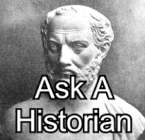|
|
|||||||||
Prehistory | 2 Worlds Meet | New France | England Arrives | Clash of Empires | Revolution | British America | Reform/Revolt | Responsible Government | Confederation | Nation Building | Laurier | The Great War | Roaring 20's | Great Depression | WWII | The Peace | Cold War | Trudeau | PC's in Power | Modern Canada
Family Compact | Lower Canada | Upper Canada | William Lyon Mackenzie | Louis Joseph Papineau | The Maritimes | Durham Report
By G Scott staff writter, 2012 - Canadahistory.com - section:eras, subsection Reform
|
John Lambton, the Earl of Durham published a famous report in 1839, known as the Durham report, which made recommendations concerning changes in governing the colonies of Upper and Lower Canada which had both recently experienced rebellions. This report was controversial and received by different fractions in Britain and Canada in very different ways. |
The atmosphere in the colonies, upon Durham's arrival was gloomy and bitter. The Patriotes, or Lower Canadian French patriots, had lost over 200 of their number and their leadership had either bee executed or scattered to the winds, mainly in the U.S. The conditions were also unsettled and confrontational in Upper Canada and action was expected.
Durham was thought of as somewhat of a radical due to his belief and positions relating to various political issues of the day. He supported removing legal restrictions imposed upon Roman Catholics, felt that a universal education system in Britain should be implemented, was a staunch supporter of free trade and backed the Reform Bill of 1832 which expanded the electorate in Great Britain.
It should have come as no surprise that his assessment of the situation recommended more power to the elective assemblies by requiring their support for any individuals chosen by the Governor for the elected council. This in effect was the first major step towards responsible government. The Governor would be responsible to the legislative assembly in his choice of the executive, the executive would be answerable to the assembly in its actions with their approval and the assembly would be responsible to the voters who elected them. The pent up demands and support of the mass of the electorate could be vented and realized through the political system.
His recommendations went one step further in that he believed that local issues and administration should and could be handled by a second level of government on the municipal level. This would insure that purely immediate problems of a town, village or area could be addressed by their municipal level and avoid taking purely regional issues into the colony wide theatre.
His second concern revolved around his feelings that the existence of two nations, French and English, in one colony, Lower Canada, was a boiling pot of confrontation. He believed that the problems were racial, not political. He wrote that the best solution to Lower Canada's issues would be the assimilation of the French culture, language and civil society. The most effective measures to achieve this objective would be to unite Upper and Lower Canada, let the English majority elect and direct government policies and eventually erode French rights, traditions, laws and expectations.
The immediate reaction to Durham's report in London was to consider the merge of the Canada's and the start of the assimilation process, but the colonial office balked at the extension of responsible government to the colonies. That would have to wait for a more opportune, stable time to begin.
The same issues and debates also existed in Nova Scotia where Joseph Howe campaigned for responsible government. He was also disappointed at the reaction of the Britain to their desires and Durham's report.








